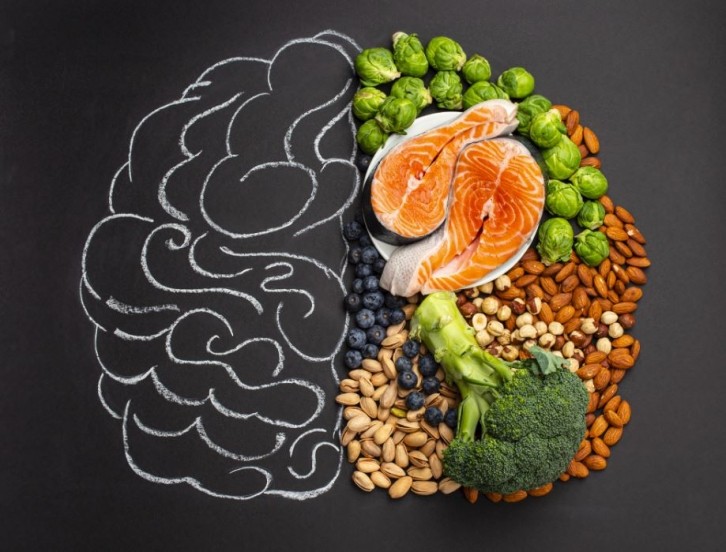Study: Gender influences diet's impact on cognition in Alzheimer's patients

The authors from Taiwan conducted a cross-sectional observational study and found a direct influence of dietary frequencies and blood profiles on cognitive outcomes in the 592 enrolled AD patients.
Published in 'Nutrients', the study reported improved mental state scores related to higher intakes of specific food and drink, most notably tea and coffee, which the authors put down to caffeine benefits.
The researchers further noted that the influence of dietary pattern on cognition was not simply mediated by folate–B12–homocysteine levels in men and women. In males, a direct influence was attributed to B12, while in females, homocysteine was a more critical factor.
The authors report these findings fill a "critical research gap", stating: "We found a gender-specific trait among these three blood profiles. B12 remained the most significant factor in AD cognitive-outcome prediction in male patients, and the interrelationships among B12, homocysteine, and folate were significant.
"In contrast, we found homocysteine played a major role in outcome prediction in female patients, and the influence of homocysteine was related to B12 and not folate."
Dietary patterns and AD symptoms
Homocysteine is an intermediary product of methionine and its metabolism requires coenzymes B6, B12, and folate. Insufficient levels of these coenzymes lead to elevated homocysteine and increase on the risk of dementia.
Early nutritional and dietary interventions can be utilized to regulate homocysteine levels, thereby reducing the risk and mitigating the symptoms of AD.
No previous study has clarified if the diet influences cognition via changes of folate–B12–homocysteine blood profiles or whether there are gender-specific effects on the interplay between folate–B12–homocysteine blood profiles and cognition.
Cross-sectional analysis
A total of 246 male and 346 female AD patients were enrolled at Kaohsiung Chang Gung Memorial Hospital from 2008 to 2023.
Patients provided demographic data and blood samples and underwent Mini-Mental State Examination (MMSE), and a Food Frequency Questionnaire (FFQ) for quantitative assessment of dietary frequency.
To gain a deeper understanding of the associations among dietary patterns, blood characteristics, and cognition, the team employed Structural Equation Modeling (SEM) to analyze the relationships between diet, blood parameters, and cognition.
For all patients, higher MMSE scores were related to higher frequencies of coffee/tea and eggs, higher educational levels, higher body mass index, and younger age.
Discussing the link between tea/coffee intake and higher scores, the authors hypothesised that caffeine intake affected MMSE cognitive performance.
Lower cognitive scores were related to higher age, and higher homocysteine, processed food, skim milk, and sweet drink intakes.
The folate–B12–homocysteine axis played a significant role in cognition, leading the researchers to assert the study fills a "critical research gap".
"We found a gender-specific trait among these three blood profiles. B12 remained the most significant factor in AD cognitive-outcome prediction in male patients, and the interrelationships among B12, homocysteine, and folate were significant. In contrast, we found homocysteine played a major role in outcome prediction in female patients, and the influence of homocysteine was related to B12 and not folate.
The study revealed gender differences in dietary intake frequencies and dietary patterns directly related to cognitive outcomes. For male patients, categories such as skim milk and coffee/tea were influential, while fruit/vegetable/egg, coffee/tea, and entrails were related to cognitive outcomes in female patients.
Although folate or homocysteine was found to relate to food categories, the direct effect of diet and the folate–B12–homocysteine axis profiles were not established. The authors assert the weighting of B12, folate, and homocysteine on the MMSE was minor compared with diet pattern, suggesting a possible non-pharmacological intervention strategy.
"Variations in vitamin B12 and folate levels in the blood were found to have a direct or indirect impact on blood homocysteine levels, subsequently affecting cognitive function," the authors concluded.
They added: "Understanding the dietary sources of these protective nutrients for AD is crucial, as it aids in the development of personalized nutrition plans and treatments for primary prevention."
Discussing future research opportunities, the authors noted the need to establish more precise neuroprotective dosage, frequency, and duration considerations. They call for a multi-centre study to improve generalizability of results and a longitudinal study to help "disentangle the complex interplays" among the factors.
Discussing the limitations of using FFQs, they suggest a larger sample size and diet photoimaging software could improve data validity.
Source: Nutrients
doi: 10.3390/nu16050733
"Diet Pattern Analysis in Alzheimer’s Disease Implicates Gender Differences in Folate–B12–Homocysteine Axis on Cognitive Outcomes"
Authors: C.P. Ting, M.C. Ma, H.I. Chang, C.W. Huang, M.C. Chou and C.C. Chang




